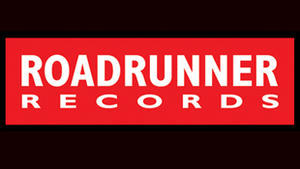Dear Record Label: Should I Copyright My Songs?

In a band? Have no idea how to go about getting a label to take you seriously? We've got the answers you're looking for.
In our new series, "Dear Record Label," we went to Roadrunner Records -- home of Slipknot, Rob Zombie, Opeth, Megadeth, Kenny Wayne Shepherd, Trivium and more -- and asked them the tough questions young bands should know the answers to. Each week, we'll be bringing you advice from members of the Roadrunner staff to try and get you on track to get noticed.
This week, the advice comes from Roadrunner Records Senior Director of New Business Development, Dan Goldberg.
Should I consider copyrighting my material? If so, how?
DAN GOLDBERG: Yes, it’s always a good idea to copyright your material. In the United States, a musical copyright is created when the work is fixed in a tangible medium. In layman’s terms, this means when the work is tangible like on sheet music, or on a CD. However, you should still “register” the copyright. The registration provides prima facie evidence of your work in court in the event that your copyright is infringed upon. The form to register a sound recording can be found here.
The exclusive rights granted to the copyright holder by the Copyright act are: the right to reproduce, the right to create derivative works of the original, the right to sell, lease or rent copies of the work to the public, the right to perform the work publicly, and the right to display the work publicly. According to the most recent ratification of the Copyright Act, for new copyrights, the copyright holder enjoys these rights for their life plus 70 years after their death.
And if you're an unsigned band, be sure to check out Roadrunner's Sign Me To website, which allows unsigned bands to display their music, move up charts based on fan ratings, get reviewed by Roadrunner staff and maybe even get signed!
Get The Pick Newsletter
All the latest guitar news, interviews, lessons, reviews, deals and more, direct to your inbox!
"Upgrading from your entry-level acoustic opens the door to an entirely new world of tonewoods, body shapes, and brands": 6 signs it's time to upgrade from your first acoustic guitar
"I'm past my prime": 5 common excuses for not learning the guitar – and 5 body and mind-boosting reasons you should









